Our Keynote Speakers
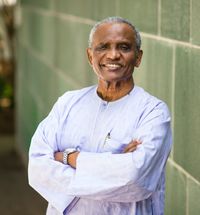
Prof. Abdullahi Ahmed An-Na'im
Biography Abdullahi Ahmed An-Na'im (from Sudan) is Charles Howard Candler Professor of Law at Emory Law, associated professor in the Emory College of Arts and Sciences, and senior fellow of the Center for the Study of Law and Religion of Emory University. An internationally recognized scholar of Islam and human rights and human rights in cross-cultural perspectives, An-Na'im teaches courses in international law, comparative law, human rights, and Islamic law. His research interests include constitutionalism in Islamic and African countries, secularism, and Islam and politics. An-Na'im directed diverse research projects which focus on advocacy strategies for reform through internal cultural transformation Education: PhD (Law), University of Edinburgh (Scotland), 1976; LLB (Honours) and Diploma in Criminology, University of Cambridge (England), 1973; LLB (Honours), University of Khartoum (Sudan), 1970
Keynote Self-responsibility and self-help are the core concept and methodology of self-transformation and self-liberation. According to Abdullahi Ahmed An-Na'im states are not able to protect human rights because of the structural limits of so-called international law. The only thing a state can do is to strive to uphold the civil rights of citizens and residents under domestic law, whereas human rights belong to all people by virtue of their humanity. In his lecture, he will take a closer look at the following aspects: • Explanation and affirmation of commitment to human rights; • Critique of Sharia as human interpretation of Islamic sources, therefore neither eternal nor immutable; • Critique of state-centered legal enforcement under international law, as inherently incapable of protecting human rights by legal enforcement. • Argument for protection of human rights through people-centered advocacy of cultural transformation and political mobilization.
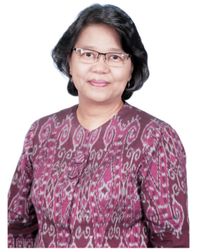
Dr. phil. Juliana Murniati
Biography Fakultas Psikologi Universitas Katolik Indonesia Atma Jaya where she teaches intercultural competence and psychology. She also directs a PHD programme in psychology.
Keynote In her keynote Dr. Murniati will present the Indonesian understanding of responsibility to the participants. In Indonesia, responsibility is understood as social responsibility, which focuses on helping each other and solidarity. This is an Indonesian cultural standard that also influences other forms of responsibility accordingly. She looks at this form of responsibility against the background of crisis situations, such as the current Corona pandemic, and at the same time addresses the dimension of power distance and leadership, which of course influence social responsibility.
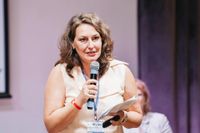
Christina Röttgers
Biography Christina Röttgers develops cultural skills in companies and for managers. For 25 years she has facilitated cultural processes in organizations and trains and coaches in leading multicultural teams as well as personal leadership in more than 25 countries. Since studying philosophy, Slavic languages and Eastern European law, she has worked in a multidisciplinary manner. Christina is a lecturer at the CBS International Business School and the Rheinische Fachhochschule Köln. Here, too, her topics are multidisciplinary: various intercultural topics, international politics, gender equality and diversity. Christina has been a member of Sietar Germany since 2006 and has been leading the KölnRheinRuhr regional group since 2018. www.christinaroettgers.com
Keynote Self-Group-Global Responsibility – Ethics-Culture-Politics: Do we have an answer? Philosophy teaches asking questions, essential questions. The topic of this bar camp and the question of responsibility raises so many more questions that we start with a philosophical-multidisciplinary overview. What is responsibility? Who will take it on? How do we know what to do? How do we act if we don't know? When we look at ourselves, at groups and the world, we deal with ethics, cultural studies and politics and always approach responsibility from a different angle. How should I act? What kind of responsibilities can groups take on and how can society best take on responsibility for groups? What responsibility does politics have for the implementation of values? How can the prescriptive mandate of politics be reconciled with descriptive, cross-cultural approaches? On the one hand, this prelude draws a wide arc with practical examples from all disciplines and at the same time it will show a common thread for further discussions.
Further Guest Contributions
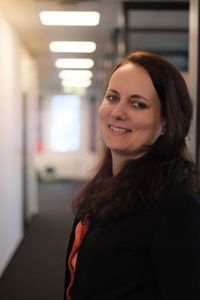
Heike Brugger
Biography Dr. Heike Brugger studied politics and public administration as well as mathematics and physics at the University of Konstanz, Germany. In 2017 she obtained her Phd from the University of Konstanz in the Department of Politics and Public Administration with her work focusing on the local energy transition in Germany and the relevance of policy networks therein. She was a visiting scholar at the University of Arizona (Tucson, USA 2014-2015) and at the Grenoble Ecole de Management in France (2020). Heike Brugger joined the Fraunhofer Institute for Systems and Innovation Research ISI in January 2018 and since March 2021 she is leading the Business Unit Energy Policy in the Competence Center Energy Policy and Energy Markets. Her research interests include the design and evaluation of energy and climate change policies, particularly in the field of energy efficiency, digitalisation and artificial intelligence as well as the modeling of the development of energy consumption in private households and the tertiary sector. An additional research interest lies in the analysis and consultation of local energy and climate policy and politics.
Contribution Man-made climate change will result in drastic changes to our livelihood in the coming years and decades. The latest report of the IPCC (Intergovernmental Panel on Climate Change) clearly shows the efforts that will be required in the coming years and the (sometimes drastic) political course that will have to be set. The global north, which has caused the absolute majority of emissions over the past decades, has a special responsibility. In addition to clear reduction paths in the global North, the question arises as to how an increase in the standard of living beyond fossil energy sources can be realized in the global South. International negotiations are therefore based on the principle of common but differentiated responsibilities. In her lecture, the following questions will be examined in more detail: How much time do we have left? Overview of current emission figures and developments in global energy demand; What is happening in politics? Overview of the milestones of (European) energy policy; Is mitigating the climate crisis a technological challenge? What does the intergenerational concept of freedom mean and why is it central to the climate crisis? How can we take responsibility and live up to our responsibility? Food for thought
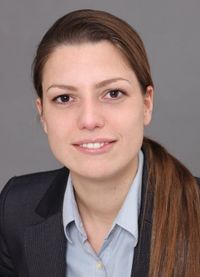
Vera Friedlmeier
Biography Vera Friedlmeier (formerly Mühlenbeck), Master of Arts, intercultural communication and cooperation, has been working in management reporting staff positions in various international companies since 2008. In 2019, she conducted a study on the topic of responsibility from the perspective of employees of a large German car manufacturer. She is currently working in the area of human resources controlling for a growing SAP consulting company. She also continues to work on the topic of corporate culture and responsibility in a volatile environment.
Contribution Responsibility in the context of international companies: Global companies take responsibility. They define responsibility as a corporate value that is lived by the company. But what does the value of responsibility in such a broad context in an international diverse cultural environment mean concretely for individuals? A study on the congruence of employee behaviour with the corporate values in a large German automotive group showed that there was a striking divergence: the understanding of the corporate values was very diverse and thus the implementation of the values varied accordingly. And this seems to be the case in many companies where values have been defined, but the question always arises: are the values really lived? Vera Friedlmeier‘s presentation deals with the question: can the value of responsibility, be lived in a common understanding, or are cultural differences, different background knowledge and different framework conditions of the individuals an obstacle to a common understanding of responsibility in an international company?
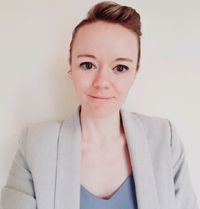
Dr. Katharina Lefringhausen
Biography Dr. Katharina Lefringhausen is a Cross-Cultural Social Psychologist, working as an Assistant Professor at the Heriot-Watt University, Department of Psychology, in Scotland (former Associate Professor at the University of Warwick, Applied Linguistics). Her research focusses on intergroup relationships, mainly how majority members themselves acculturate towards ethnic minorities in a shared society and its consequences for both - majority and minority members (e.g., well-being, creativity, intergroup relations) - across contexts (e.g., work, university, or society) and time. Moreover, Katharina has been a board member at SUK since 2016 and is currently functioning as the Director of Community Development. In this role she leads a team of trainers and academics in the creation and delivery of a RAAS project - the support of volunteers who work with refugees and asylum seekers in the UK (https://sietar.co.uk/refugees-and-asylum-seekers-project/). Her research on majority members' acculturation constitutes a core element of the project's approach.
Contribution In times of growing human displacement due to war and climate change, SIETAR UK and Switzerland decided to use their members' expertise to develop initiatives for the support of refugees/persons who seek asylum (RAAS) as well as volunteers who work with them. In so doing, we also wanted to emphasise the role of majority group members (e.g., UK nationals) who often function as volunteers in the acculturation process of RAAS. The UK project provides a free 3h x 3 days intercultural training for volunteers who work with RAAS via charities, addressing participants cultural awareness and communication, unconscious bias, and privilege, as well as their own cultural adaptation and strategies towards RAAS. The Swiss "Start!" project provides a one-day 5h training for mentors (mostly majority members) and mentees (RAAS) together, within a Higher Education context, making use of the peer-to-peer situation in the approach to the training. By introducing the underlying aim and two possible approaches towards its fulfilment, we hope to spark other local SIETARians to organize their own RAAS projects.

Dr. Koffi Emmanuel Noglo
Biography Dr. Koffi Emmanuel Noglo holds a PhD in political science and is a freelance journalist (trained by the School of Multimedia Journalism of the University of Lille/ESJ-Lille, France: esj-lille.fr) and currently works as "Head of the Peacebuilding Programme" of EIRENE (eirene.org) in the Sahel (Burkina Faso, Mali and Niger), with the office in Niamey, Niger. He is also the "Honorary Director of Academie Bilimon" (bilimonacademie.org or bilimon.de), of which he is a founding member (08.09.2011 in Lome, Togo).
Contribution A practical example: "Académie Bilimon" in Togo and Germany - assumption of self-responsibility is the central theme in the accompaniment work of young people (www.bilimonacademie.org or www.bilimon.de)
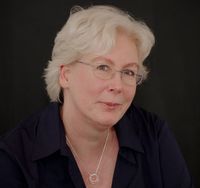
Gitta Peyn
Biography Gitta Peyn is an international speaker on the dynamics and FORMs of conflict systems in the context of complexity management, has developed a reference system for international communication and, among other things, gave a lecture on "Intersectionality and Collective Intelligence" at the "Strategies for Transformative Global Leadership" conference of the United Nations and the World Academy of Art and Science in June 2020.
Contribution Every social, economic, ecological responsibility is first of all a responsibility to communicate. Responsibility can only be taken by those who can take responsibility. But those who can take responsibility are also responsible for taking responsibility. In order to be able to do this, we first need to know: What can we actually take responsibility for? With the responsibility for communication we face special challenges, especially in intercultural contexts, because: The complexity of system dynamics multiplies, cultural biases are added to individual ones. Without fundamental knowledge of the systemic background of potential developments of system dynamics, confronted with the constant confrontation with one's own inability to take responsibility, intercultural communication systems in particular not only run into often insurmountable conflicts, but also into stagnation systems: Systems that only ever manage the status quo without really enabling joint, visible and constructive change. We are looking forward to the systems and cybernetics researcher Gitta Peyn.
.jpg/picture-200?_=17eb9aeaab8)
Still I Rise NGO
Biography Still I Rise is an NGO providing advocacy, protection and educational services for vulnerable children. The organization started on the Greek island of Samos, supporting minors living in the refugee camp by opening a youth center which offered - and continues to offer - education, food, therapy and a safe place to escape from the horrors of the camp. Similar initiatives soon followed in Syria and now the Democratic Republic of Congo, with a site in Turkey due to open later in the year. The organization has also begun to operate high quality international schools, free of charge, in nations that have become the destinations or long term transit spaces for migrants. Mike Fisher is the Education Manager of Still I Rise. He has spent 10 years being an educator and getting the best out of educators, specializing in emergency and developing contexts. His role at Still I Rise is to upgrade their educational provision to the highest standards.
Contribution Taking responsibility is the bread and butter of the charity sector. Still I Rise takes responsibility by advocating, protecting, educating and partnering with like-minded responsibility-takers. But what the NGO also does is something which forward-thinking actors in the Development space are beginning to focus more and more on: to give responsibility. Giving responsibility to the people who would usually be labelled "beneficiaries" can be challenging: it can seem counterintuitive, it can involve sacrifice, it can sometimes limit funding. But in the long term, it's the most responsible thing to do. Mike Fisher's talk at BarCamp provides practical examples of how Still I Rise takes and gives responsibility, and raises the question of how this approach is reflected in other sectors.

Prof. Dr. Maria Begoña Prieto Peral
Biography Prof. Dr Maria Begoña Prieto Peral is Professor of Spanish, Cultural and Country Studies of the Spanish-Speaking World at the University of Applied Sciences Munich. She was Dean of Studies at the Faculty of General Studies and Interdisciplinary Studies until 2019. She currently heads the Faculty's Languages and Cultural Studies Department. Her research focuses on the construction of national identity in Spanish-speaking countries and the study of cultural identity processes among migrants.
Contribution Freedom, resilience and global responsibility in times of crisis - my contribution is about how crises promote and challenge us interculturally and challenge us to global values and actions.
This overview is not final. It will be updated regularly - so stay tuned!